12 May 2025
Contents
From the Deputy Principal & Head of Early Years and Primary
Supporting Wellbeing at Home with Grow Your Mind
From the Assistant Principal & Adolescent Community Program Director
Update from the MIC Collective
From the Principal
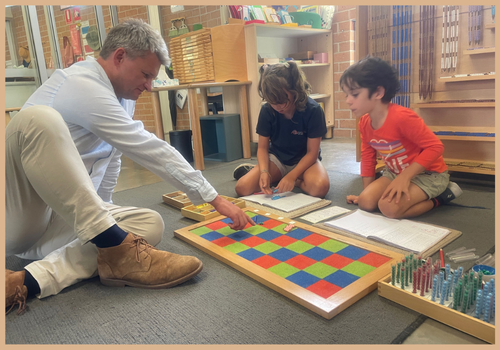
Dear MIC Families,
I hope you are well and your family has had a smooth transition into Term 2, despite the three public holidays falling in the first three weeks of term and the challenge of establishing regular routines that this can bring.
I first want to reiterate my gratitude to Larissa and Rael for their dedication, compassion and care for the community as they led the college during the first quarter of the year. Your passion and energy for our community is obvious, and I look forward to working with you and our team to continue progressing our college and community.
As a new Principal coming in, one thing that has thoroughly impressed me has been the positive, supportive and inclusive community that is fostered at MIC. I say community in that statement as this not only includes staff and students, but very significantly, our families, including parents, grandparents and extended members of the family.
The above reference to community is important. In Montessori, we talk a lot about independence. However, one of the lesser known or understood aspects of Montessori is that independence isn’t the end goal. Independence is just a step. Interdependence is the ultimate goal.
“There is a cosmic organization of work which necessarily involves specialization or division of labor, a collaboration amongst all the workers or agents, and therefore innumerable relationships of interdependency.” (Maria Montessori’s Cosmic Vision, Cosmic Plan and Cosmic Education, Camillo Grazzini)
Check out this great article, From Independence and Interdependence, to explore this concept further.
In my short time at MIC, I have had the opportunity to meet some families, and I look forward to continuing to do so over the next 6 weeks and, of course, into the future. One easy way to catch me is to come along to the Food for Thought Café on Wednesday mornings, where I will be from this Wednesday until the end of term, to introduce myself and hopefully meet and hear from you. I hope to see you there!
For those who cannot make the early start we will be organising a community afternoon later this term.
It has been fantastic to begin getting to know all our staff. I’ve now met with more than half of the team individually. This has been such a wonderful opportunity to find out about our team’s visions for MIC; identify what is working well, and what could be changed or stopped; identify how we ensure we are aligning with authentic Montessori philosophy in everything we do; and discuss what opportunities we provide for international initiatives, activities and programs at the college, and how we can enhance/refine this in the future. There have been so many great suggestions and thoughts, and many that we will implement to advance and progress the college.
Whole staff meetings are such an important time for the full team to get together and engage in some broader visionary work. Last week, we did exactly that as we created a Montessori Journey Map to give us a deeper perspective into our students, from when they begin with us as 3-year-olds, all the way through to when they graduate with us at 18 years of age. The task had us reflecting on our understanding of the development of our children and adolescents, the needs and characteristics of all stakeholders at each stage/age of their educational journey and how we can best support the community to thrive at every level. It was a great chance to zoom out and look at the whole child during their full education continuum at the College (3-18 years).
Finally, it has been a privilege to connect with children and adolescents in my first 12 days at the college! I have heard many stories and been asked many questions during this time (and asked many questions of students). One way that I encourage more of this is through the writing of letters. The rationale for this is summed up through this Montessori quote: “The hand is the instrument of the mind.” (Maria Montessori, The 1946 London Lectures, p. 36). Check out the article, Why Cursive?, to find out more about the benefits of handwriting, and particularly, cursive handwriting.
I love receiving and replying to letters, and this is a great way for students to practice their handwriting. The content of the letters could be students telling me about themselves, asking questions about me, pitching their ideas/thoughts for the college (e.g. longer lunch time proposal, the establishment of a student council, we need monkey bars on the playground – which has already been pitched) or anything really.
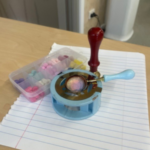
I then seal my letter with my very own wax seal, and it is fantastic to know that some classes have already purchased their own to do the same! The letters are coming in fast, and I look forward to receiving more.
Kind regards,
Chris
From Rael Matthews – Deputy Principal & Head of Early Years and Primary


Primary School Camps – Week 2, Term 3
We are pleased to announce that both our Junior and Senior Primary camps will take place in Week 2 of Term 3. These camps are an incredible opportunity for students to build independence, strengthen friendships, and engage in experiential learning outside the classroom. Stay tuned, as further details and permission forms will be shared with you very soon, via School Stream.
Year 6 Canberra Trip – Week 2, Term 4
For our Year 6 children, preparations are well underway for the much-anticipated Canberra Trip, to be held in Week 2 of Term 4. This is a significant highlight of the year, offering our children the opportunity to deepen their understanding of civics, citizenship, history, and culture in a hands-on, immersive way. The schedule for the trip is currently being finalised, and parents of Year 6 children can expect to receive more detailed information about this trip, including an invitation to an information session, next week.We are excited to see the positive impact these experiences will have on our childrens’ learning and development, and growth.

Supporting Wellbeing at Home with Grow Your Mind
As part of our commitment to supporting the mental health and well-being of our children, we are proud to implement the Grow Your Mind program at school. This innovative program helps children develop resilience, emotional intelligence, and positive mental health strategies through playful and engaging tools.
To further support your child’s well-being, we encourage all parents to explore the resources available on the Grow Your Mind website.
By using the same language and strategies at home that we use at school, you can help reinforce these important lessons, making it easier for your child to manage their emotions and navigate challenges.
One of the unique and effective features of Grow Your Mind is the use of animals to represent different parts of the brain and emotions. These animal metaphors make conversations about feelings and mental health accessible and engaging for children. Here’s a brief overview of the animals your child may talk about:
- The Guard Dog: Represents the amygdala, the part of the brain responsible for protecting us when we feel scared or threatened. When the guard dog is overreacting, children learn to calm it down with techniques like deep breathing or mindful moments.
- The Wise Owl: Represents the prefrontal cortex, which helps us make good decisions, solve problems, and regulate our emotions. This owl is at its best when the guard dog is calm!
- The Elephant: Represents memory and learning. Just like an elephant never forgets, this part of the brain helps us remember important things and connect past experiences to new ones.
- The Sifting Sooty: Represents focus and attention. The sooty helps children sift through distractions and focus on what matters most.
- The Sensitive Octopus: Represents empathy and emotional connection, helping children understand and respond kindly to the feelings of others.
Using these animal characters, children can better understand their feelings and actions, and they gain tools to manage their emotions healthily.
How You Can Support at Home
- Visit the Website: Explore resources for families, including free podcasts, posters, and practical tools designed to support your child’s mental health.
- Practice Together: Use the same language your child hears at school – ask them how their ‘guard dog’ is feeling or how their ‘wise owl’ is helping them make a decision.
- Listen to the Podcast: The Grow Your Mind Podcast, hosted by children for children, is a fun and engaging way to deepen your child’s understanding of mental health.
- Make Wellbeing Visible: Consider using posters or other resources to make mental health conversations a regular and playful part of your home life.
By working together as a community, parents, educators, and students, we can create a shared understanding and language around mental health that fosters resilience, emotional wellbeing, and lifelong learning.

Upcoming Parent Education Evenings
We are excited to share our two Parent Education Evenings this Term, in which we aim to provide valuable insights into supporting your child’s development both at school and at home.
We are excited to invite all parents to our upcoming Parent Education Sessions, designed to deepen your understanding of the Montessori philosophy and the unique benefits it offers your child’s development.
- Wednesday 21 May 6.00 pm: The Role of Language in Montessori Education
Explore the fascinating journey of language development in the Montessori classroom, from building vocabulary to writing and listening. Learn how the prepared environment and hands-on activities foster your child’s communication skills and creativity. - Tuesday 27 May 5.00 pm: Montessori for the Primary Years
Discover how the Montessori primary curriculum builds on the foundations of Early Years education, fostering independence, critical thinking, and a lifelong love of learning. Learn about the transformative three-year cycle and the social-emotional benefits of the primary classroom.
These sessions are a wonderful opportunity to see how Montessori supports your child’s holistic growth and prepares them for future success. We encourage all parents to attend and join us in strengthening the connection between school and home.
We encourage all parents to attend one or both of these sessions to strengthen the connection between school and home and to gain practical tools to support your child’s growth and development.

From the Larissa Rook – Assistant Principal & Adolescent Community Program Director

Excursions and outings provide our young people with invaluable opportunities to broaden their awareness of the wider community, access existing resources found outside of the school environment and experience planning and navigating public transport (wherever possible) with the goal to increase their confidence and independence, problem-solving, and knowledge of the world beyond the Adolescent Community. In the Montessori adolescent program, excursions are not just trips—they are transformative experiences.
We’ve already had numerous excursions this term, with the 7/8 students travelling to Brisbane to explore the mysteries, artistry and rituals from one of the world’s most captivating civilisations in Discovering Ancient Egypt at the Queensland Museum. The group also visited the Asia Pacific Triennial exhibition at the Queensland Art Gallery and the Gallery of Modern Art, which showcased contemporary artists from our neighbouring countries. Students were able to experience new and exciting art and see works they had studied during Term 1 in real life.
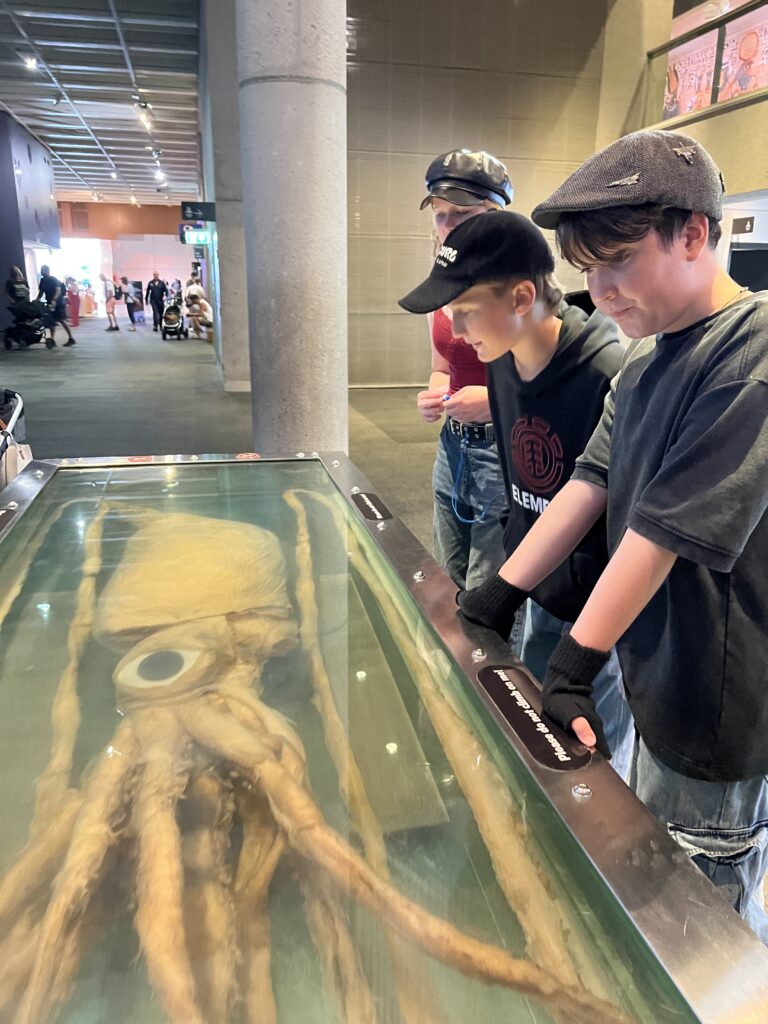
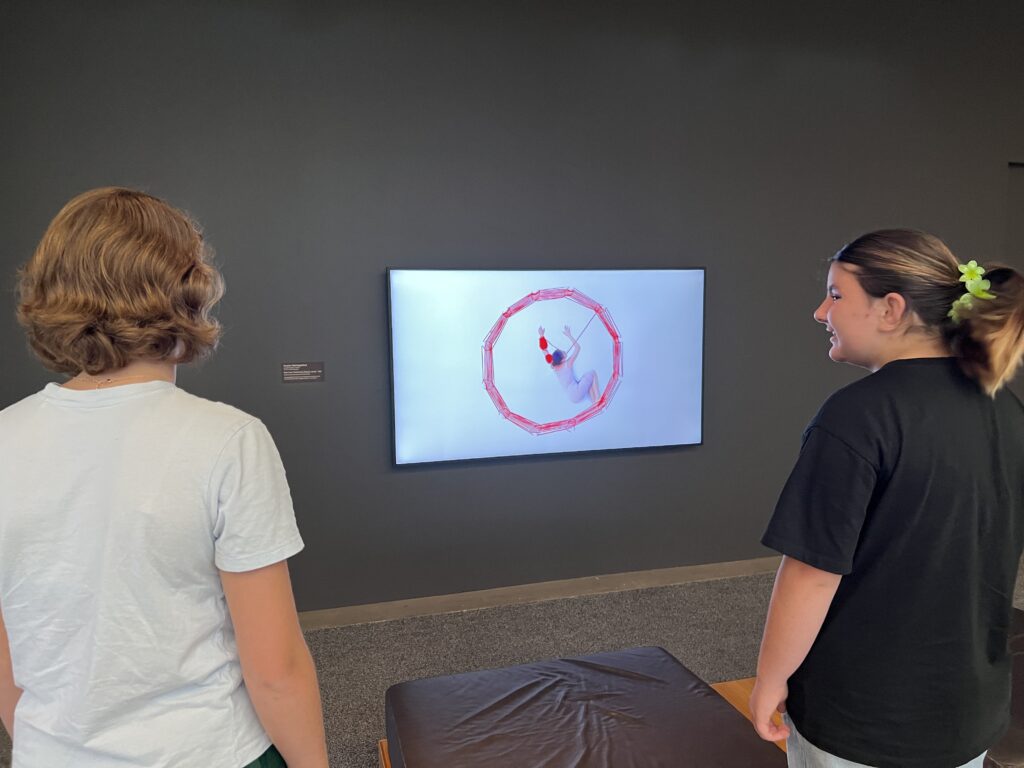
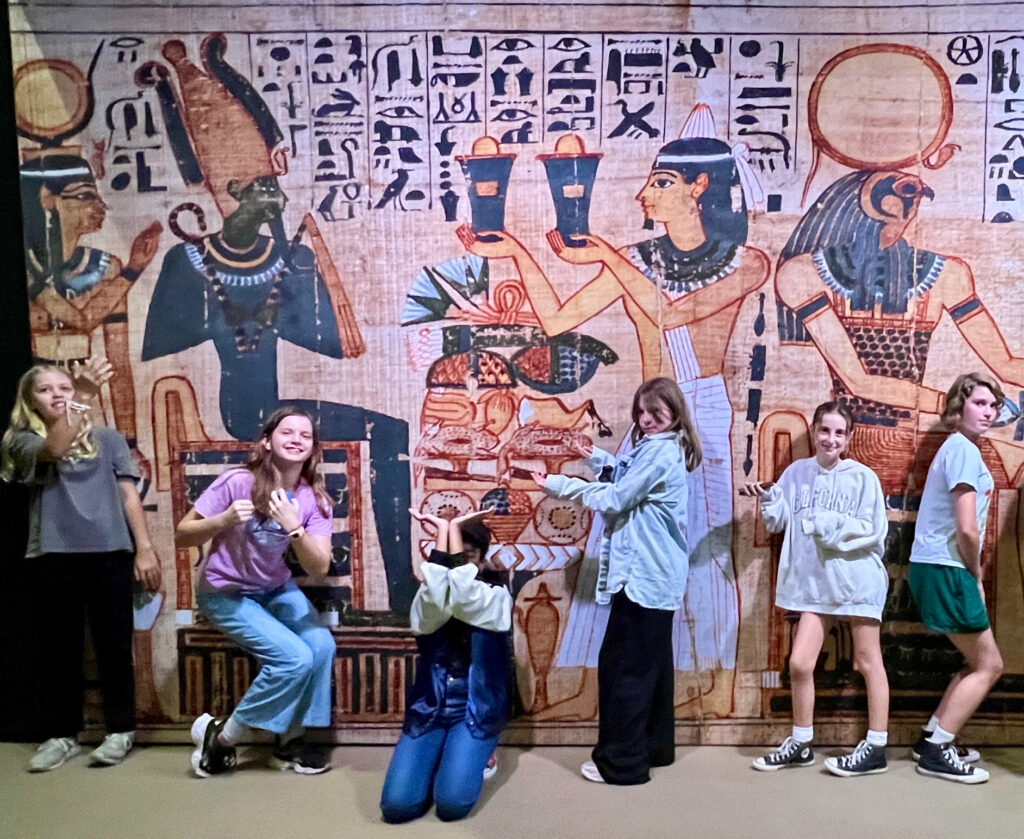
On the following day, the Year 11 and Year 12 students had the exciting opportunity to visit the University of Queensland’s St Lucia campus. They participated in a series of introductory sessions designed to give them a taste of various courses of their choice.
Student thoughts:
“I attended ‘the right medicine for the right patient’ lecture, which taught me valuable information about new innovations in the pharmaceutical industry, such as 3D printed medicine. We were given an example to work through, identifying which medication was right for a patient, which gave me an insight into working as a pharmacist and helped me understand the complexities of prescribing medicine.”~Carlyn Orne-Gliemann
“UQ was a fun and enjoyable experience. We went to multiple lectures and areas of the campus throughout the day to experience different career paths. It was great to be able to see different career paths that I could choose, like engineering, and to do something interactive with them. Even if the career path wasn’t for me, such as the biology talk, it was still interactive and enjoyable.”~ Liam Macdonald
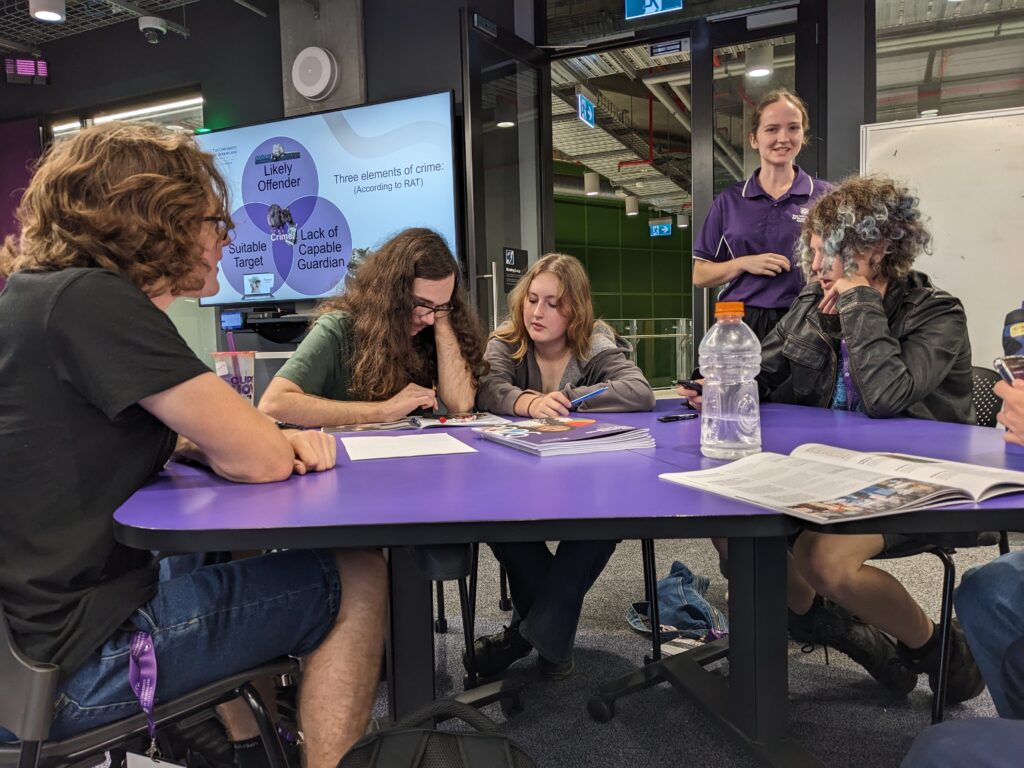
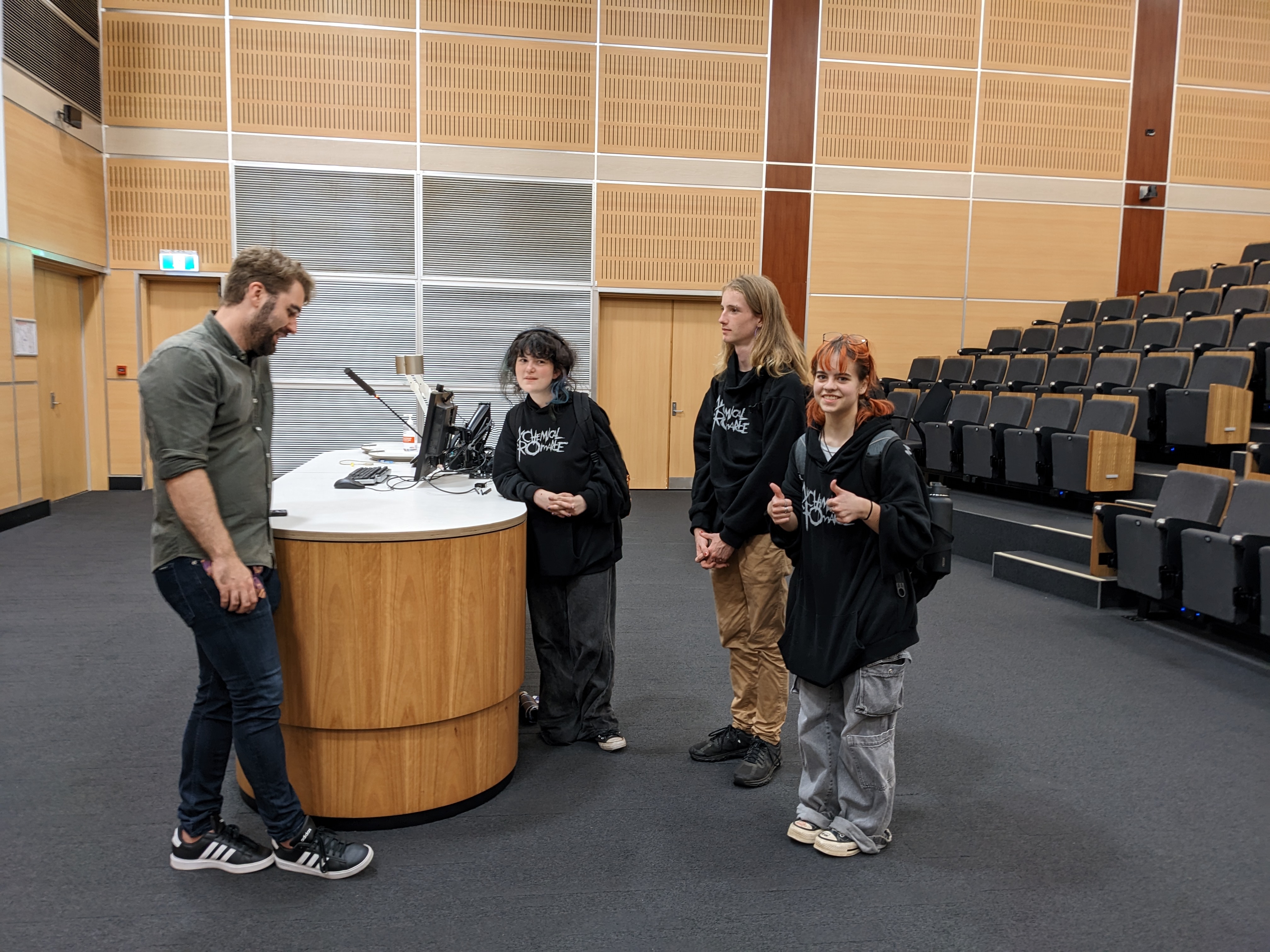
On April 24, we gathered for an Anzac Day service, which was beautifully led by Michelle and Seiji from the Adolescent Community. Their message intertwined our Montessori values with remembrance. Students were reminded that Dr Maria Montessori’s hope of a peaceful world continues with them. By living with kindness, understanding, compassion, and respect for self and one another; by resolving conflicts peacefully; and by celebrating our differences. These lessons are the foundations of our community and a peaceful world.
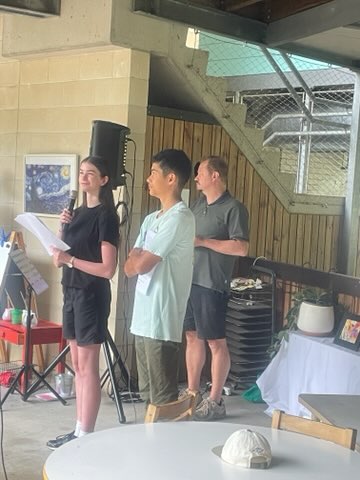
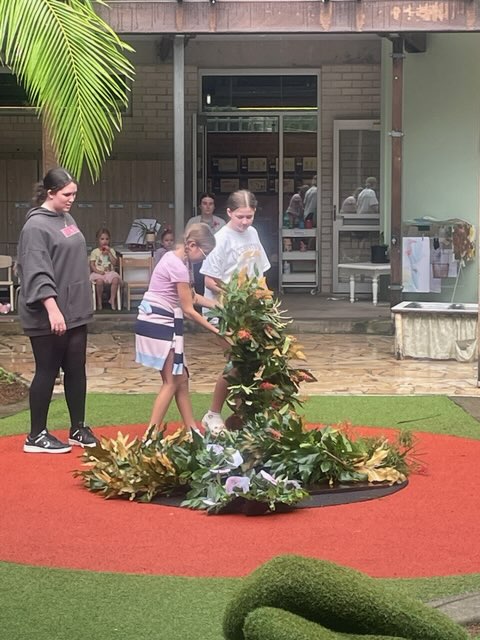
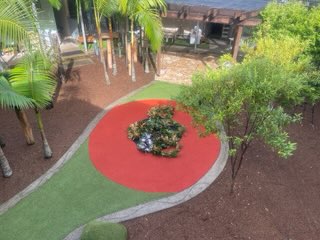
We look forward to more adventures and opportunities for contributions throughout the weeks to come, as our adolescents continue to explore, learn, and grow individually and collectively.

Update from the MIC Collective
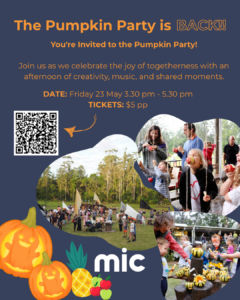
Don’t forget to buy your tickets for the Pumpkin Party!
DATE: 23 May 3.30 pm – 5.30 pm
BUY TICKETS: $5 per person – Book here (you’ll need the School Stream app to access the page)
Less than two weeks to go until this incredible event!
We’re still looking for volunteers to help us run this magical afternoon. Please email us at miccollectivecommittee@gmail.com if you could support this fabulous community experience.
Thanks!
The MIC Collective Committee
